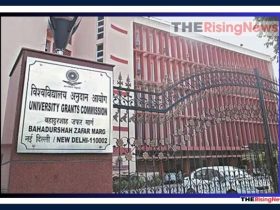
Lola Beltrán, one of the most acclaimed singers of Mexican ranchera and huapango music, was honored on March 24, 2021, on the 25th anniversary of her death. Fans, artists, and authorities paid tribute to the woman known as “Lola la Grande” (Lola the Great), who left a legacy of more than 70 albums, dozens of films, and countless performances around the world.
Beltrán was born on March 7, 1932, in El Rosario, Sinaloa, where she grew up singing in church and participating in local contests. She moved to Mexico City with her mother in 1953, where she worked as a secretary at the radio station XEW, while pursuing her dream of becoming a professional singer. She soon caught the attention of the public and the media with her powerful and expressive voice, and her elegant and charismatic presence.
She recorded her first album in 1954, and became a star of the golden age of Mexican cinema, appearing in films such as “La Bandida”, “Los Hermanos Muerte”, and “Cucurrucucú Paloma”, the latter featuring one of her most famous songs. She also had her own television show, “El Estudio de Lola Beltrán”, where she hosted and sang with other renowned artists, such as Juan Gabriel, Lucha Villa, and Luis Miguel.
Beltrán was also an ambassador of Mexican culture abroad, performing in venues such as Carnegie Hall, the Olympia Theatre, and the Royal Albert Hall. She sang before world leaders such as John F. Kennedy, Charles de Gaulle, and Fidel Castro, and received numerous awards and recognitions, including a Grammy nomination, a star on the Hollywood Walk of Fame, and the National Prize of Arts and Sciences in Mexico.
Beltrán died on March 24, 1996, at the age of 64, due to complications from a liver surgery. She was buried in the Church of Our Lady of the Rosary in Mexico City, where thousands of people gathered to say goodbye to her. Her daughter, María Elena Leal, also a singer, has continued her mother’s legacy, performing her songs and preserving her memory.




